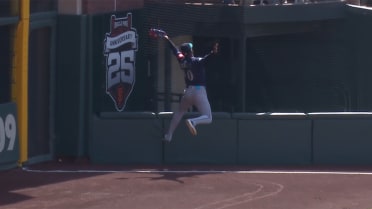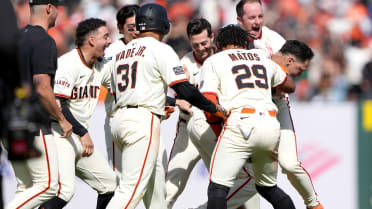Pete Rose was with the Phillies for five seasons. Personally, five very enjoyable seasons. His middle name is Edward, and that’s what I used to kiddingly call him. His response was always a smile.
He was extremely cooperative with the media, always at his locker after a game, win or lose, two hits or hitless.
As a hitter, I don’t believe I ever saw someone with better concentration and drive. If he got hits his first two at-bats, that wasn’t enough. If he got three and it was a runaway game, he bore down to get four.
After we signed him following the 1978 season, the media flocked to Clearwater, Fla., the next Spring Training. We were a good team who now added a great player who was moving to a new position, first base.
Sports Illustrated called that spring. The request was filming Pete sliding into third base headfirst, his trademark, for a cover photo. A little apprehensive at first, I agreed under one condition, only two tries.
Early one morning, the photographer, lying on his belly in foul territory, had the camera a foot or so from the third-base bag. Two tries. Mission accomplished.
Next day, the photographer called. Camera malfunctioned. Can we try again? This time, I felt Pete needed to be in the mix. When the situation was explained to him, he said, “Big magazine, ain’t it?” Two tries again. A success.
With the team in New York to play the Mets in 1979 (Sept. 11-13), Pete’s agent, Reuven Katz called me in Philadelphia. “I need to talk to Pete. Carolyn [his wife] is filing for a divorce. He doesn’t answer his hotel phone. Can you help?" Remember, there were no cell phones back then.
So, I called Chris Wheeler, who was with the team. Wheels recalls the episode: “You said all kinds of people had been trying to reach Pete all day to tell him his wife had filed divorce papers. You asked me to go to his room and give it a shot.
“I knocked on his door several times. Finally, I heard that familiar voice in a very low tone say, ‘Yeah, who is it?’ I said, ‘It's Wheels. I have to tell you something.’ The door opened slightly held by the chain. I saw those unmistakable eyes look out and he said, ‘What's up, Wheels?’ I told him what had happened. He said, ‘OK, thanks. See you on the bus.’”
Did it affect Pete? Well, he went 3-for-4, 2-for-3 and 4-for-5 in the three-game series. He finished 1979 hitting in 26 of his last 27 games, and he was named the National League Player of the Month, batting .421 and getting an amazing 51 hits in 29 games.
Pete knew everything about the next game, who was pitching, what he threw, pitch sequences, who was hot or cold or injured. His response was simple, “Why shouldn’t I? Baseball’s my business.”
Speaking of knowing everything.
Aug. 10, 1981: Baseball resumes after a lengthy strike. Pete needs one more hit to break Stan Musial’s National League record. The long 55-game strike was about to end with a bang. Veterans Stadium was jam-packed as was the press box for an ABC TV game against St. Louis to start the second half of the season.
Pete grounded a single between shortstop and third base in the eighth inning off Mark Littell for his 3,631st hit, surpassing Musial, who set the record in a Cardinals uniform.
The game was halted as Rose was acknowledged by the throng of 60,561. Musial was escorted to first base, where he congratulated the Phillies first baseman. Fireworks filled the sky. Pete Rose Jr. came out of the dugout to hug his dad.
“The whole thing about breaking records is the reaction of the fans,” he said. “It was very special, because it happened at home in front of so many Phillies fans. Musial being there was icing on the cake.
“There was no pressure attached to this record. It’s not like a hitting streak. I needed one more hit, and it was going to happen. It was just a matter of where, when, the kind of hit and the pitcher.”
Following the game, we had an interview room set up in a large room behind home plate to accommodate the media mass. He looked at me as we walked toward the room, “You got the president calling?” My response was silence. I told you he knew everything.
President Ronald Reagan was supposed to call on a phone we had next to the podium, but the White House said it was subject to last-minute changes.
Shortly after the start of the press conference, the special red phone rang. It was the White House. A historic moment turned into a hilarious one:
White House operator: “Mr. Rose, hold on please ...”
Pete: “Tell the president, I’ll be with him in a minute.”
White House: “Mr. Rose, hold on please ...”
Pete: “Good thing there isn’t a missile on the way.”
White House: “Mr. Rose, hold on please ...”
Pete: “I’ve waited 19 years for this, I can wait another minute.”
White House: Mr. Rose, hold on please ...”
Pete: “Larry, I’ll give him my home phone.”
Finally, “Hello Pete, this is President Reagan calling.” Pete brought down the house further by responding, “Hey, how ya’ doing?”
Ironically, Musial’s 3,630th hit came in the Cardinals’ final game of the 1963 season on Sept. 29, in St. Louis, which also was his last game. It was a sixth-inning, ground-ball single to right past a rookie second baseman on the Cincinnati Reds named Pete Rose.
Coming to Philly
When Pete was a free agent following the 1978 season, the Phillies were interested, as were the Royals and other clubs. Bill Giles picked up Rose and Katz at the airport and drove them to Ruly Carpenter’s house in Wilmington, Del. GM Paul Owens was there, too.
The Phillies' offer was short. On the way back to the airport, Giles reminded Pete if he signed with the Phillies, he would have a chance to break Musial’s all-time league record. If he signed with an American League club, it wouldn’t happen.
Katz mentioned if the Phillies would increase their offer, Pete would agree to come to Philly.
Giles went to work and convinced the Phillies' TV station, WPHL TV, to increase their fee on the basis that advertising rates would increase with Rose in the lineup.
At the Winter Meetings in Orlando, Fla., the Phillies signed Rose to a four-year, $3.24 million contract (1978), the highest in baseball. Two years later, their first World Series championship.
Unhappy Ending
For three decades, Charlie Hustle was baseball’s greatest ambassador. He was a 17-time All-Star.
His career had Hall of Fame written all over it, after all he is the hit king (4,256). But he was banned from baseball for betting on baseball games when he managed the Reds.
Items at the Baseball Hall of Fame include his helmet from his 1973 MVP season; the bat he used in 1978 when his hitting streak reached 44 games; and the cleats he wore in 1985 when he became the game's hits leader. But Cooperstown can’t display his plaque.
Peter Edward Rose died from natural causes at age 83 on Sept. 30 in his Las Vegas home.
Jayson Stark of The Athletic summed up Pete’s passing:
“He was the most magnetic baseball figure of my lifetime. And I don’t say that casually. I’ve thought about this for years. We couldn’t stop watching Pete Rose any time he set foot on a baseball field. We couldn’t stop talking about him when he stepped off that baseball field.”



